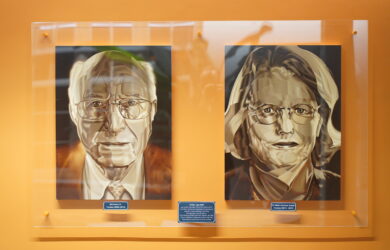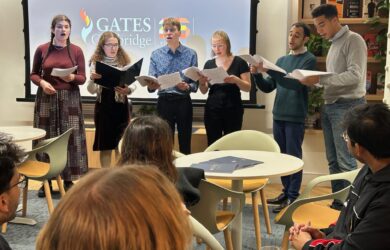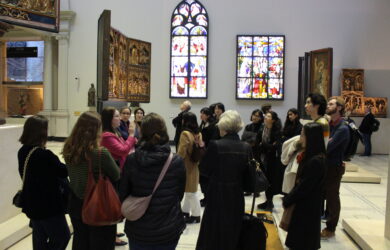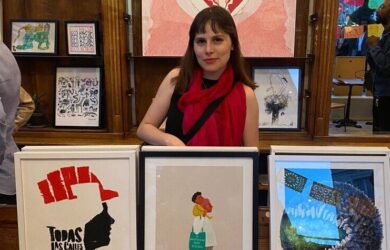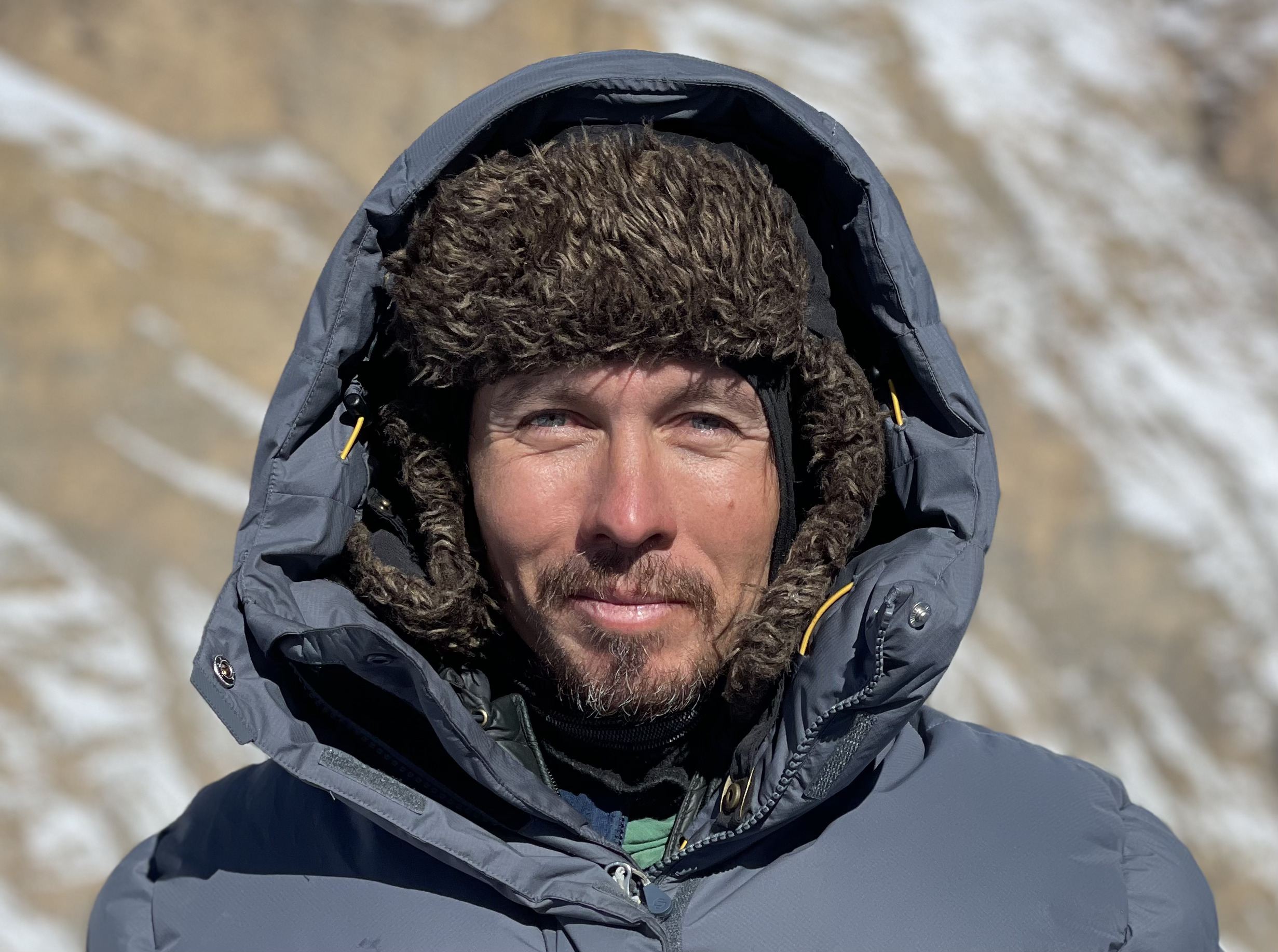
Wildlife cinematographer Alex Vail talks about his career since leaving Cambridge and the role nature documentaries play in conservation
Since my PhD, my career has changed trajectory from academia into wildlife filmmaking, but with the same goal of bringing the wonders of nature and the complexity of the creatures we share the planet with to a wider audience, with the hope of helping to conserve them.
Alex Vail
Alex Vail is a researcher-turned-wildlife-cinematographer who has worked on some of the most impactful documentary series in the world – including, most recently, the BBC wildlife series Asia.
He says: “Animal series are one of the main ways people are exposed to the wider natural world and understanding animals is vital for conservation work,” says Alex, who has won a BAFTA for his work. He adds: ”So many scientists tell me that it was through watching David Attenborough programmes that they were inspired to go into marine biology.”
For the Asia series, Alex, whose background is in studying fish intelligence, has been filming in the Himalayas and other mountainous regions. He recalls working 4,500 metres up in temperatures of minus 20 degrees, sometimes on the edge of cliffs to get the best shot.
He thrives on it, though, saying: “I love a good slog and a challenge – walking up freezing cold mountains carrying heavy things is my idea of a great time.”
By contrast, Alex has also been working on Blue Planet 3 in the tropics and has been able to research animal behaviour and work out how to capture that best, in addition to filming. “So much has been filmed when it comes to the natural world,” he says. “People want something new and the benchmark is high.” He finds this both challenging and motivating and likes the idea of being able to contribute to science through showcasing animal behaviour for the first time.
In addition to his BBC work, Alex was also one of the key directors of photography on an episode of Netflix’s Our Oceans series out later this year which has allowed him to flex his cinematographic skills. He loves the work of figuring out how to capture different animal behaviours in an unobtrusive way, using different cameras and techniques.
Alex [2010] has been working on leading natural history programmes since finishing his PhD in animal behaviour, including Blue Planet II, Planet Earth III, Seven Worlds, Our Planet, Frozen planet II and Mammals.
Two thirds of his work has been for the BBC Natural History Unit and he loves the variety and breadth of the work he does, having done around 60 shoots in the last 10 years.
From blacktip reef sharks to fangblennies
So what have been his favourite shoots? Alex says he really enjoyed filming blacktip reef sharks that beach themselves to catch bait fish, although getting this on film involved getting up at 4am and waiting until nightfall in the boiling sun. “That behaviour had never been filmed before,” he says. He had noticed it while growing up on Australia’s Lizard Island, but had no idea how it worked.
What he filmed was a potential collaboration between trevally – a type of jack fish – and the sharks, with the trevally driving the bait fish into the shallow waters where the sharks beach themselves to feed on them. He also speaks about using high speed cameras to capture the feeding behaviour of fangblennies which feed on skin, mucus and sometimes other fish scales.
Capturing such behaviour can take weeks or even months – Alex recalls spending six weeks in a hide to film an Ocelot cat that never showed up – but he says that it is worth it and adds that the work is important, given academic research priorities seem to be moving away from that kind of observational science of animal behaviour.
What’s more, he feels privileged to be able to showcase the natural world to a wide selection of the public who would not otherwise see it. Another benefit of his work is that Alex gets to work closely with indigenous people, such as Inuit hunters in the Arctic, and benefits from the knowledge about animals that has been passed down the generations. He has also learnt a lot from all the other producers and camera people he has worked with. He says camera people are a diverse and passionate group.
Risks
There are risks, however, in the work he does and most of them are to do with the weather rather than the animals he is filming. Alex talks about getting stuck in an Arctic cyclone while travelling by boat to Greenland for the Mammals series. “There were 15 metre waves and 10 tonnes of water coming at us. The railings on the boat ripped off and the door to the room with our equipment was blasted in. It was minus 15 degrees and we all felt really seasick. The boat nearly sank,” he says. Another recent shoot in Thailand saw Alex clinging onto his camera in a forest in the midst of a freak storm while he was filming a bird species. Huge trees were being snapped in half all around him as if they were matchsticks.
Alex, whose parents were both biologists on the Lizard Island Research Station in Australia for many years, says: “I feel so very lucky to have spent extended periods in some of the most remote (and sometimes hostile) places on our planet. Although I thrive in cold environments…I grew up in the tropics and also love the heat, so I am also comfortable filming in jungles and deserts and plains. I’m also very happy spending extended quiet time sitting in a hide (freezer and sweat-box versions are both ok).”
The future
He says his PhD has been very useful in his work. He researches the latest research on animal behaviour and applies it to his filming activities. Alex loves his work as a cinematographer, but would love eventually to become a voice of authority on some aspect of the natural world. He has spoken in the past about doing his own documentary on fish intelligence, following on from his research.
He is delighted to have received the Gates Cambridge Impact Prize, saying: “Receiving my Gates Cambridge PhD scholarship was one of the biggest events in my life. The opportunity this afforded me to study what I had always wanted to, and be immersed in a community of some of the most incredible thinkers and doers was truly life-changing for me. Since my PhD, my career has changed trajectory from academia into wildlife filmmaking, but with the same goal of bringing the wonders of nature and the complexity of the creatures we share the planet with to a wider audience, with the hope of helping to conserve them.”








